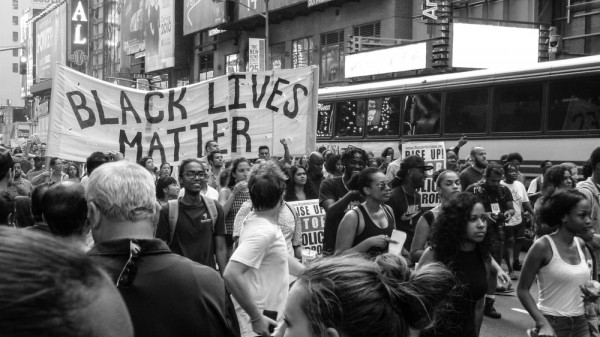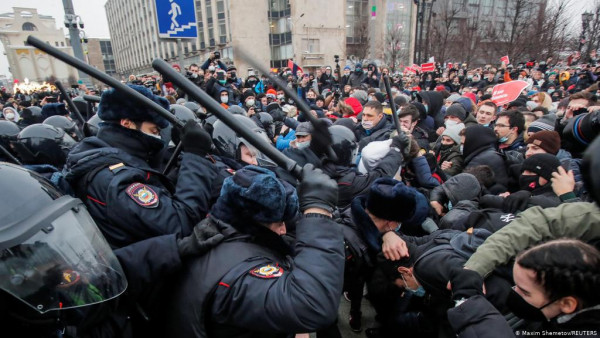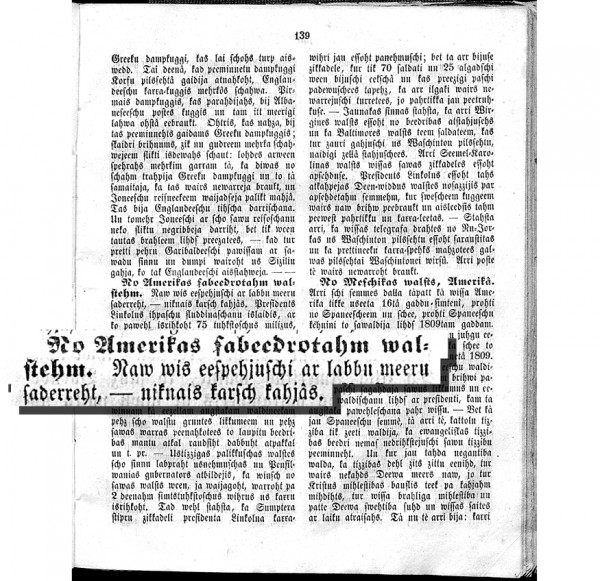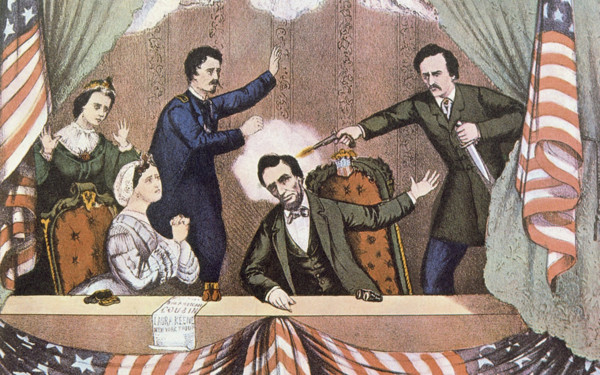A civil war has begun in America
The outbreak of the Civil War in connection with the change of the Presidents of the United States in 1860/1861 is one of the reasons for hopes or fears that the same will happen in connection with the change of US presidents in 2020/2021.
This week marks the 160th anniversary of the outbreak of the civil war, of which is known that yes, something happened, although there is no shortage of people who would rather kill each other than agree on what exactly happened. Still other people are desperately hoping or just as desperately afraid that the inability of today's Americans to agree on their history will become a burner for the powder keg on which these Americans are sitting.
It is not just Americans alone that are in great danger. That is why it is constantly being repeated that the civil war did not start yesterday only by mistake, but will definitely break out if not tomorrow, then the day after tomorrow, that others are waiting in equally dangerous places. On the one hand, this increases the overall risk that the explosion of one powder keg will spread fire to other similar kegs. On the other hand, the real dangers are perhaps less than what has been discussed. Namely, everyone is afraid for themselves and reassures themselves that others are doing even worse. Unfortunately, this other side also has its own other side, that there are some reasons for fear everywhere. The danger must be great if the shouting from nervous people has been taken over by the propaganda apparatus of different countries.
Latvia among several powder kegs
While living in Latvia, one can believe or not how Russian propagandists anticipate civil war in the United States almost every day. Yes, they can refer to realities that are known and understood in Latvia, at least by the majority who know Russian. This propaganda can just as well be seen as proof that Russia itself is in such a difficult situation that it can no longer dig itself out of the hole on its own. Then we have to hope for the intervention of external forces. If the aliens still do not arrive, then let the United States get worse than Russia.
I would very much like if in America, and not in Russia, "the confrontation from the courtroom really takes to the streets and power is seized not by those who are more adept at shooting accusations on social networks, but whose supporters are more apt shooters." Such revelations on the Russian propaganda channel Sputnik date from October 9, 2019, referring to the procedure initiated by the US legislature to impeach President Donald Trump. It is now known that this procedure did not lead to the impeachment of Trump or to armed clashes in the United States, although there was indeed a lot that seemed to be going on - it seemed that riots that might be called a civil war might be going on or start at any minute. Namely, the demonstrations with and without riots in the summer of 2020 in the United States were much more powerful than in Russia in the winter of 2021 due to the imprisonment of Alexei Navalny, the world's best-known critic of Russian power. In terms of the breadth and seriousness given to the protests from the killings of their protesters, last year's events in the United States and Belarus are comparable, which, according to ambiguous and most often ignored wording in some documents, can be called one country with Russia. This year had the riots (or storming, or another affair that can't be summarized in one word) of January 6 in the US Capitol building, after which the Russian news agency TASS procured and Sputnik spelled out what was said by Venezuelan President Nicolás Maduro that “the USA is on the verge of civil war” and so on. He may just as well be accepted as particularly credible because he is a civil war specialist who has been in power in his country under civil war for years, but he can just as well be refuted by explaining that he only wants to welcome new members in the war-torn countries club.
Latvia's location next to Russia is not only a great vantage point. Russia also reminded us of this in connection with the US presidential election. Another Russian news channel, Baltnews, on November 10 last year, put the traditional phrase that "US elections risk ending in civil war" under the title "Civil war will come back to haunt primarily the Baltics and Ukraine."
Thanks for the warning goes to Tim Kirby, who moved from the United States to Russia, where he is given the soapbox to say as fully as possible: "The main condition is that without a civil war, everything in the US will be bad as it is now. If there is a civil conflict, then the US will have a different relationship not only with Russia, but also with all the surrounding countries. For example, Ukraine and the Baltics are likely to disappear."
How Americans assign themselves a civil war
One must not give the impression that only those who have already left the country are talking about the US Civil War. Wikipedia lists more than a dozen people in various public positions or other prominent positions who have called as the Second Civil War the events from Trump's impeachment to Joe Biden's inauguration in a ceremony very reminiscent of a besieged fortress, where shots could start firing at any time from either side. There are also references to three other circumstances in which Americans speak of their Second Civil War with such zeal that it just seems like they will talk about it for so long until they persuade someone.


One is that they even managed to rename the First Civil War the Second, if the first is the War of Independence, which was indeed a war between migrants, some of whom wanted and managed to establish the United States, while the other wanted to remain English nationals. Such an interpretation of events is dear to the losers of the Civil War in that in that case they are like the winners of the War of Independence because those who fought for secession from the United States lost in the Civil War.
Secondly, that the events between 1865 and 1877, when the states that lost the war without open battles, but not without the use of force, were regained in the Union, are worthy of the name of the Second Civil War.
The third is a "cultural war" that is taking place in much the same way as in 1865-1877 but differs in that it occurs on several fronts or dimensions, which change like a kaleidoscope. For example, the struggle between banning or allowing abortion is also being raised to the level of a cultural war. Much more understandable were the events of the 1960s and 1970s when US society split for and against the country's involvement in the Vietnam War.
The attempts of the writers and the authors of the films made on the basis of the materials given to them, to figure out what could mobilize and organize Americans to fight against each other for at least the time necessary to develop the plot, should be seen in the long run. Wikipedia names 11 novels and 7 films whose stories are devoted in whole or in part to such hypothetical events. The latest derivative of these stories is their inclusion in computer games. If the US authors at least hoped that the public would understand their heroes, then certainly there was or is some reason for it, but it is not clear to foreigners what are these insignificant things, as a result of which Americans are supposed to destroy or at least significantly damage their country as a mechanism from which they all benefit.
The first in the Wikipedia list is Sinclair Lewis's (1885-1951) novel, "It Can't Happen Here," about a politician who becomes president to seize a constitutionally unauthorized amount of power that others are trying to deprive him of. In America, this did not happen, but it did in Germany in 1933 and in Latvia in 1934. In this case, priority should be given to the Latvian author Vilis Lācis (1904-1966) for the “20th Century Fairy Tale” published already in 1933 in the magazine Domas about the country of Tarabubija, which becomes the “Prison State”, which is the name of this “fairy tale.” Subsequent works follow various variations on how Americans are forced to destroy each other because of the depletion of resources that were destroyed by nuclear war or simply used up. These events have been deployed both in the past and sometime in this century.
The real chronicle of the beginning of the war in the Latvian press

It is possible to rest from the uncertainty of the future in the certainty of the past, at least in terms of facts, before the reservations that interpretations of the facts are constantly changing and fighting with each other. It is agreed that the Civil War in the United States began with an attack by rebels or freedom fighters on Fort Sumter, a symbolic defense of US government troops in South Carolina on the Atlantic coast, where it was set to protect the country from an external invasion over water. The fort was also adapted for protection in the event of an attack from the ground, but not filled with soldiers, war materials and food. The 75 men guarding the fort were forced to surrender on April 12, 1861. In the territory of present-day Latvia, this fact was first announced by the newspaper Rigasche Zeitung on April 17 or 29, respectively, in the new European/US and old Russian style in the section “Telegraph News”: "London, April 26 (14). There have been reports from Washington on the 14th that Fort Sumter has fallen after 40 hours of fighting." The arrival of world news to Riga at that pace was maintained by the Wolff Continental-Telegraphen Bureau telegraph agency at that time.
A few days later, on April 22, after the new style, the same fact was commented on by the Libauische Zeitung that on April 14 in New York, "the main news is the fall of Fort Sumter in South Carolina. It is a disaster that must be seen as the beginning of a civil war." A little later, but more imaginatively, Latvians learned the same thing from the Mājas Viesis on May 1, that the Americans "have not been able to live in peace - the fierce war on their feet".
The variety of motives for the next US Civil War encourages interest in what they really fought for last time. After the results of the war at the time and the current echoes, it seems that it all revolved around the liberation of black people from slave labor in cotton plantations and, at times, from slavery in general. Contemporaries did not think so. On April 13, 1861, the Libauishe Zeitung explained that "the new President of the United States, Lincoln, was behaving inappropriately (ersnslich unpasslich). The new, increased customs tariffs, which caused great unrest, came into force on the 3rd day of the month. The eviction of federal forces from Fort Sumter in South Carolina is expected in the coming days."

In a slightly expanded explanation, the story is that Abraham Lincoln (1809-1865), elected president of the United States in 1860, cared for the capitalists of the northern states of the United States, forcing Southern planters to sell their cotton to American textiles instead of English. Initially, it was not a question of slave labor being used to grow cotton, and that it would be good to change the methods of cotton plantations. So it's a very believable version of another anniversary that has just passed. Namely, that Lincoln, five years after the start of the Civil War, was fatally shot on April 14, 1865, not by someone who hated black people, but who loved the English capital.
*****
Be the first to read interesting news from Latvia and the world by joining our Telegram and Signal channels.